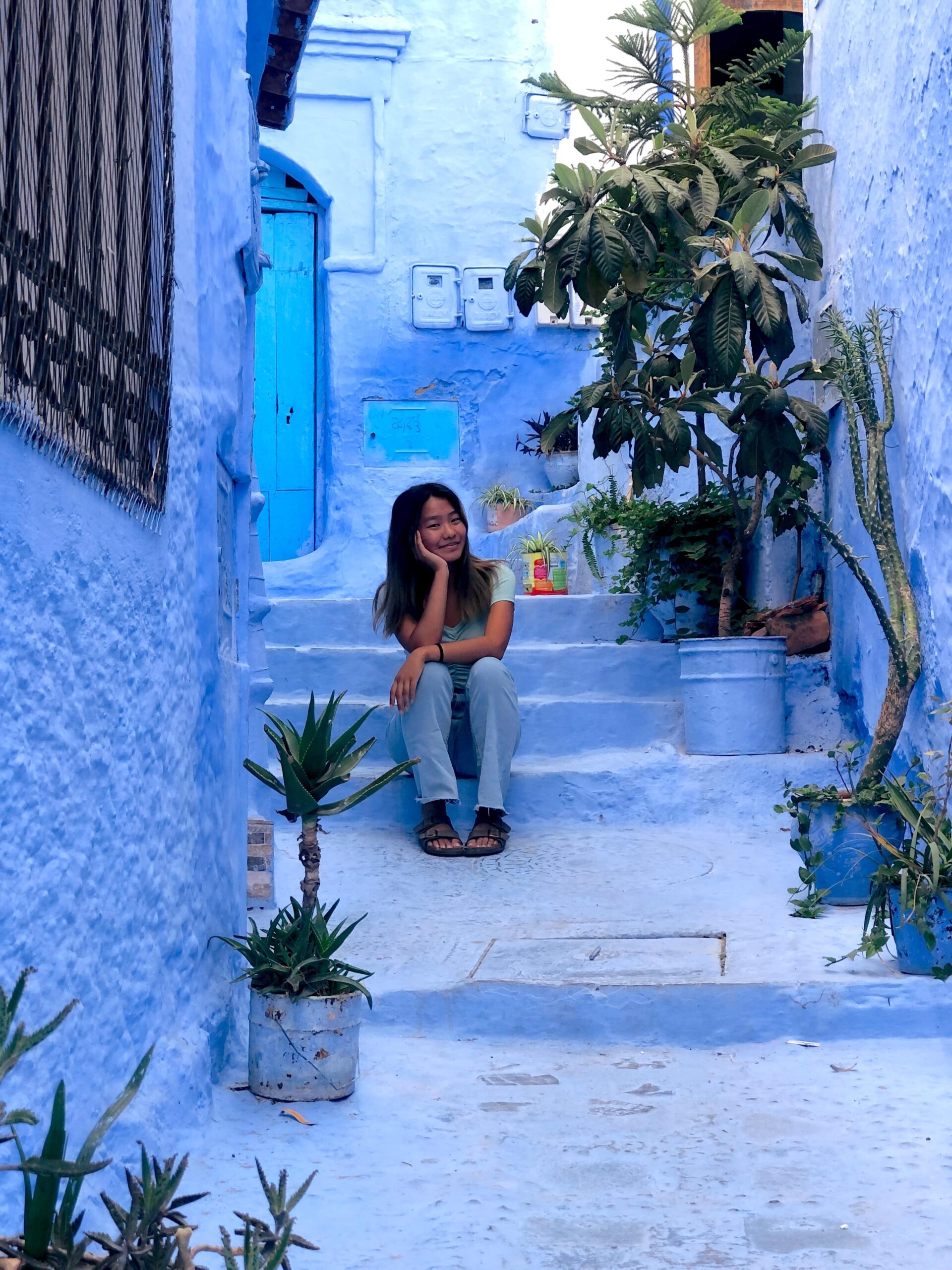A Multilingual Workplace
By: Merry Gu, CAS ’21

Jossour Forum des Femmes Marocaines – Rabat, Morocco
Morocco is perhaps best known for being a melange of diverse cultures, where Berber, Arabian, European, West African, and Sephardi Jewish influences are present in each city’s traditional cuisine, architecture, and attire. Language is no exception; my daily walk to work is peppered with school signs printed in geometric Amazigh (indigenous North African) characters, billboards advertising phone plans in French, and Moroccans greeting each other with a kiss on the cheek and pleasantries in Darija (Moroccan Arabic). Every night, my nine-year-old host brother recounts the events of his daily recess soccer games first in Arabic to his mother and grandmother, and then in French to me. The ease and speed with which he switches between the languages are astounding–and envy-inducing. The ways in which different languages occupy various roles in Moroccan culture are exemplified in my workplace, Jossour Forum des Femmes Marocaines. I had already assumed that affairs would be conducted in more than one language at my internship, but it wasn’t until I had spent several days there that I finally began to contextualize the existence of French, Arabic, and English in a professional setting.
Multilingualism plays an especially unique role in the work that Jossour FFM does. Jossour FFM is an NGO with consultative status to the UN Economic and Social Council that works to promote gender equality and women’s rights in Morocco and the Middle East North Africa region; as such, it is as deeply involved in the local community as it is with partners in other countries and with international organizations like the United Nations. I have had the opportunity to witness and learn about the purposes for which each language is used and the connotations that come with them, in contexts from workshops to colloquiums to Facebook posts.
Between its permanent staff, interns, partners, and consultants, almost all members of Jossour FFM’s team are fluent in at least two of the three languages of Darija, French, and English. I was curious, then, as to which language would be chosen for what purpose. How did people decide the language in which a seminar would be conducted, or whether to share a Tweet in French versus Arabic? It turns out, workshops and conferences tend to be held in whichever language would better serve the community in attendance. For example, Jossour FFM hosted an economic training workshop for female entrepreneurs in the informal medina economy in Darija, as most participants used the dialect more comfortably and more often. That same month, Jossour FFM hosted a formal round table discussion on constitutional law and gender equality that was attended by university professors, lawyers, and activists. It was held in French, which is used in most government and official business; additionally, diplomats and representatives from western Europe who were present were better able to understand and contribute effectively, and records and presentations wouldn’t need to be translated for future publications.
The Jossour FFM website is entirely in French, as are the brochures, official proposals, and activity reports that are available online, so I had assumed that my work would be almost exclusively in French as well. What I hadn’t expected was how useful my English would be. As a native speaker, I was tasked with writing all of the applications for funding opportunities by English-speaking organizations. Jossour FFM also partners with several organizations from the United States and Canada to implement its projects, so I had the opportunity to assist with related phone calls, progress updates, and conferences.
Working in a multilingual environment has been an absolute treat. Being able to translate and work in English while understanding much of the affairs in French greatly increased my engagement with and understanding of the organization. My time at Jossour FFM has left me with a deeper understanding of the linguistic barriers and advantages in the field of foreign service and international relations, and a renewed desire to improve my second and third languages and to pick up others as much as possible.
The Global Research and Internship Program (GRIP) provides outstanding undergraduate and graduate students the opportunity to intern or conduct research abroad for 8 to 12 weeks over the summer. Participants gain career-enhancing experience and global exposure that is essential in a global workforce. Placements and funding awards are available.